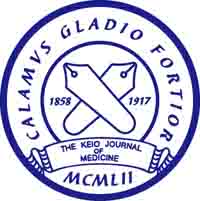<Title:> Mechanisms of iPS cell generation and beyond
<Author(s):> Keisuke Kaji
<Abstract:> The generation of induced pluripotent stem cells (iPSCs) achieved by overexpression of Oct4, Sox2, Klf4 and c-Myc, transformed our classical views of the cellular epigenetic landscape and delivered a new concept for cell and tissue engineering. In addition to iPSCs, several other cell types have also been generated by master transcription factor (TF)-mediated transdifferentiation. However, the critical molecular mechanisms amongst diverse cellular identity changes are not well understood. Through the investigation of reprogramming mechanisms, we recently revealed that over-expression of constitutive active Smad3 boosted not only iPSC generation, but also 3 other master TF-mediated conversions, from B cells to macrophages, myoblasts to adipocytes, and human fibroblasts to neurons. This demonstrated that there were common mechanisms underlying different master TF-mediated cell conversions. To illuminate such mechanisms further, we have recently performed CRISPR/Cas9-mediated genome-wide knockout screening during reprogramming with a lentiviral gRNA library containing 90,000 gRNAs. This screening provided us with ~15 novel reprogramming roadblock genes as well as ~20 candidate genes essential for the reprogramming process but not for ES cell self-renewal. This data set will be a valuable resource to further understand how overexpression of master TFs alters cellular identity, and to achieve more faithful, efficient cell conversions for regenerative medicine.(Presented at the 1934th Meeting, March 17, 2017)
<Keywords:>
<URL:> https://www.jstage.jst.go.jp/article/kjm/66/1/66_66-002-ABST/_html


![Body Motion and Rowing Performance: Association between Hip Angle and Rowing Performance: A Pilot Study [Published online Keio J Med, 69, 66-75, by J-STAGE]](http://kjm.pupu.jp/blog/wp-content/uploads/2020/09/2019-0007-OA-100x100.jpg)
![Surgical training and research in the Netherlands [Published online Keio J Med, 68, 68-68, by J-STAGE]](http://kjm.pupu.jp/blog/wp-content/uploads/2019/09/68-005-ABST-100x100.jpg)
![Intractable Pruritus as Initial Presentation of Cytomegalovirus Tuberculosis Coinfections [Published online Keio J Med, 74, 106-112, by J-STAGE]](http://kjm.pupu.jp/blog/wp-content/uploads/2025/06/2024-0012-CR-100x100.jpg)
![Acute Kidney Injury as the First Manifestation of Sarcoidosis [Published online in advanced , by J-STAGE]](http://kjm.pupu.jp/blog/wp-content/uploads/2025/01/2023-0020-CR-100x100.jpg)
![Development of Cardiac Regenerative Medicine Using Human iPS Cell-derived Cardiomyocytes [Published online in advanced , by J-STAGE]](http://kjm.pupu.jp/blog/wp-content/uploads/2020/08/2020-0009-IR-100x100.jpg)
![Diabetic Ketoacidosis as the Initial Presenting Symptom of Pancreatic Cancer: A Comprehensive Review [Published online Keio J Med, 74, 69-78, by J-STAGE]](http://kjm.pupu.jp/blog/wp-content/uploads/2025/06/2024-0015-OA-100x100.jpg)
![Clinical Significance of Right Ventricular Function in Pulmonary Hypertension [Published online Keio J Med, 70, 60-67, by J-STAGE]](http://kjm.pupu.jp/blog/wp-content/uploads/2021/09/2020-0015-IR-100x100.jpg)
![Coagulation Assay and Stroke Severity upon Admission of Patients with Cardioembolic Cerebral Infarction during Direct Oral Anticoagulant Use [Published online in advanced , by J-STAGE]](http://kjm.pupu.jp/blog/wp-content/uploads/2021/03/2020-0019-OA-100x100.jpg)
![Efficacy of Cognitive Stimulation Therapy for Cognition in Patients with Vascular Cognitive Impairment: A Pilot Randomized Controlled Trial [Published online Keio J Med, 73, 39-46, by J-STAGE]](http://kjm.pupu.jp/blog/wp-content/uploads/2024/12/2022-0030-OA-100x100.jpg)
![RT-PCR Screening Tests for SARS-CoV-2 with Saliva Samples in Asymptomatic People: Strategy to Maintain Social and Economic Activities while Reducing the Risk of Spreading the Virus [Published online in advanced , by J-STAGE]](http://kjm.pupu.jp/blog/wp-content/uploads/2021/03/2021-0003-OA-100x100.jpg)